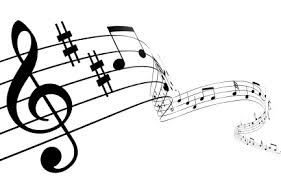How Making Music Reduces Stress

Whenshe needs relief from the grind of delivering major proposals, Dana Marlowe,33, of Washington, D.C., makes some noise. "I cruise right into my toddler’splayroom, and I just jam out with his toys the xylophone, the baby piano. Ialmost have 'Twinkle, Twinkle, Little Star' down," says Marlowe, atechnology accessibility consultant.
This kind of casualmusic-making can short-circuit the stress response,research shows, and keep it from becoming chronic. Stress starts in thebrain andthen kicks off a chain reaction that switches on the stress response in everycell of our bodies. Over time, these cellular switches can get stuck in the"on" position, leading to feelings of burnout, anger, ordepression as well as a host of physical ailments.
Researchersnow know that playing a musical instrument can switch off the stress response,improving physical and emotional health. When our senses detect a possiblethreat in the environment, the body undergoes a chain reaction in whichgenes within each cell switch on, directing the cells to produce chemicalsassociated with the stress response. Playing music sets off an opposite chainreaction that switches these genes off again.
Recreational Music Is the Key
Here'seven better news: You don’t have to be as proficient as violinist JoshuaBell to get the benefits quite the opposite, in fact. The more seriously youapproach musicianship, the less relaxing it may be.
"Typicalmusic-making is based on practice, performance, and mastery. In recreationalmusic-making, our intention is to feel comfortable and nurtured in a creativeexperience with absolutely no pressure," says Barry Bittman, MD, CEO andmedical director of Meadville Medical Center’s Mind-Body Wellness Center, inMeadville, Pa.
Studiesshowing the de-stressing benefits of music-making are piling up: Itreduced the prevalence of burnout in nursing students and long-term careworkers, and improved the school performance and behavior of a group ofinner-city, at-risk youth. Remember, Bittman says, that you should think ofmaking music not as an end product, but as a tool for health and well-being.
Thatsounds good to Marlowe. "It’s a fun release from the daily grind,"she says. "After five or 10 minutes, I can go back and finish my work after straightening up the playroom."
Howto Start Using Music for Stress Reduction
What’sthe best way for the not-so-musically-inclined to get in the swing? BarryBittman, MD, has some pointers:
Don’t pick up a guitar. Masteringbasic finger technique takes too long, Bittman says. Your goal is to enjoy theexperience here and now. It’s important to choose an instrument that doesn’trequire tons of technique to sound good. He suggests digital keyboards that letyou make pleasant sounds just by pressing keys. Or just bang on a can.
Playby ear.Don’t worry about learning songs or reading music. Instead, take a tip fromDana Marlowe and simply jam away for the fun of it. "I’m not going to bereleasing a record any time soon," she says. "It’s just a loud cacophonyof sound."
Enjoyoften. It does take time for thebenefits of music-making to create lasting changes in your cells. Studies havefound that playing an hour a week for six weeks can lower the stress response.Making music is like any other wellness activity you should make it apermanent lifestyle change.
Article Source: http://www.webmd.com/balance/stress-management/features/how-making-music-reduces-stress
Image Source: https://encrypted-tbn1.gstatic.com/images?q=tbn:ANd9GcTQ5svRL9cSYUTwkcKf6L_mLN_JhGXTINvPQJLzRrvVwEBLrNqM
VOCABULARY WORDS:
1. Toddler(n.) ~ a young child learning to walk
2. Chronic(adj.) ~ lasting for a long period of time
3. Burnout(n.) ~ physical or emotional exhaustion
4. Chainreaction (n.) ~ a series of events in which each influences the next
5. Proficient(adj.) ~ having or marked by an advanced degree of competence
6. Pileup (phrasal verbs) ~ to accumulate
7. Play by ear (idiom) ~ to act according to thecircumstance
8. Cacophony(n.) ~ a harshness of sound
QUESTIONS FOR DISCUSSION:
1. How do you usually deal with stress?
2. Do you agree that listening andplaying music is a good way to relieve stress? Why?
3. Do you listen to music every day?What kind of music?
4. Can you play any musical instrument?How do you feel when you play it?